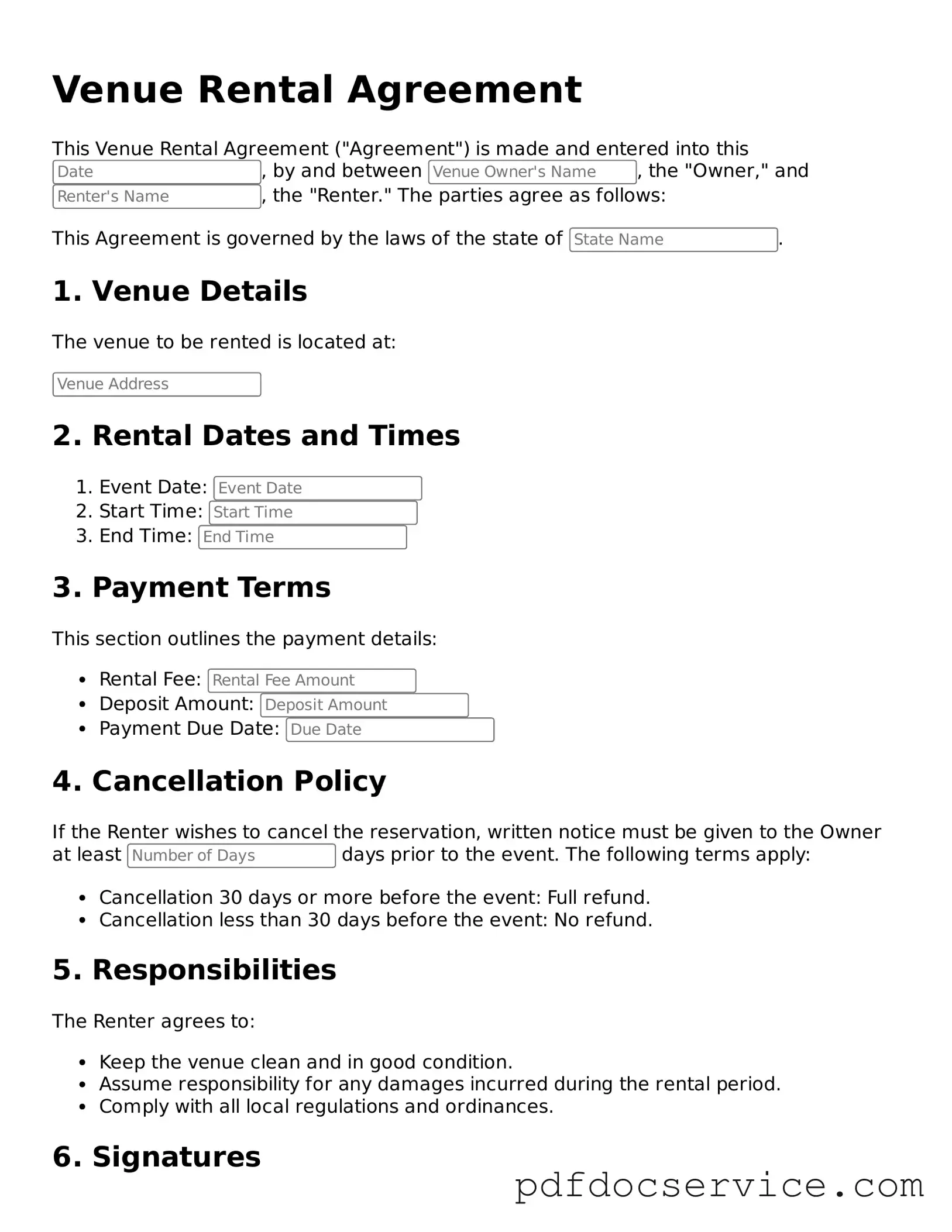Blank Venue Rental Agreement Form
A Venue Rental Agreement is a legal document that outlines the terms and conditions for renting a space for events, such as weddings, parties, or corporate functions. This agreement protects both the venue owner and the renter by clearly defining responsibilities, payment terms, and cancellation policies. Understanding this form is essential for ensuring a smooth and successful event experience.
Open Venue Rental Agreement Editor

Blank Venue Rental Agreement Form
Open Venue Rental Agreement Editor

Open Venue Rental Agreement Editor
or
Get Venue Rental Agreement PDF
Finish the form now and be done
Finish Venue Rental Agreement online using simple edit, save, and download steps.